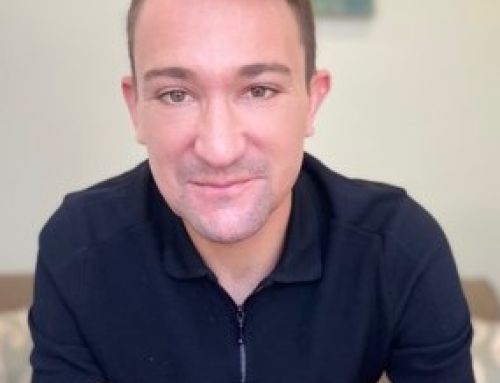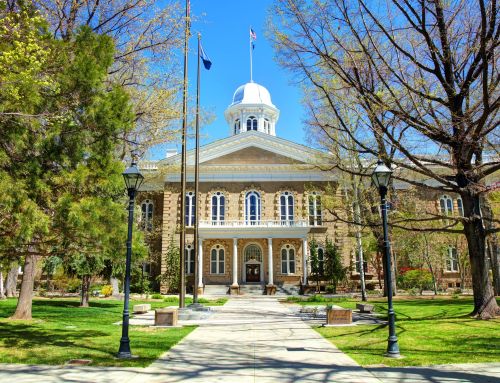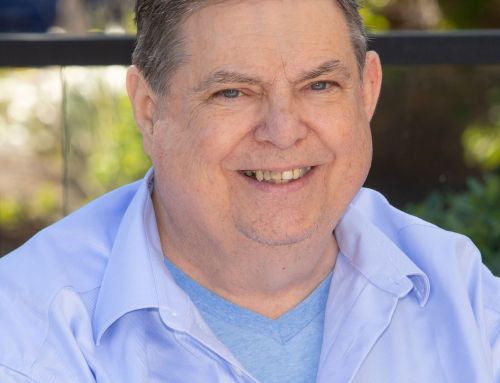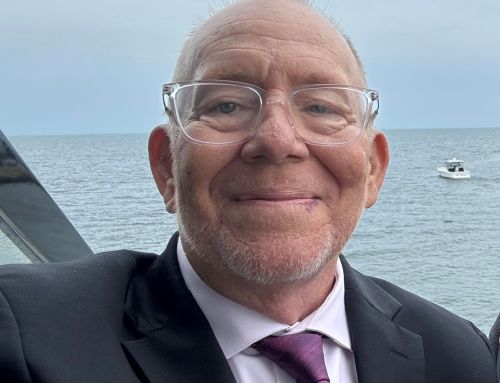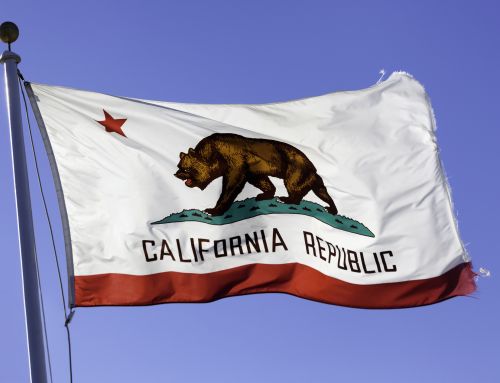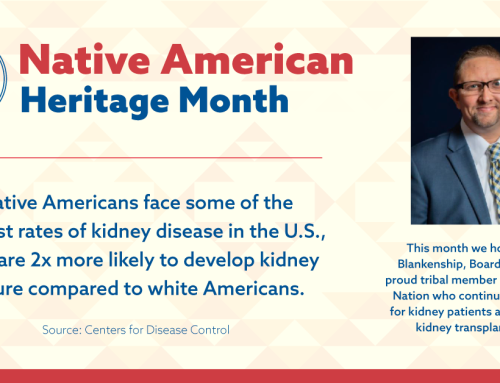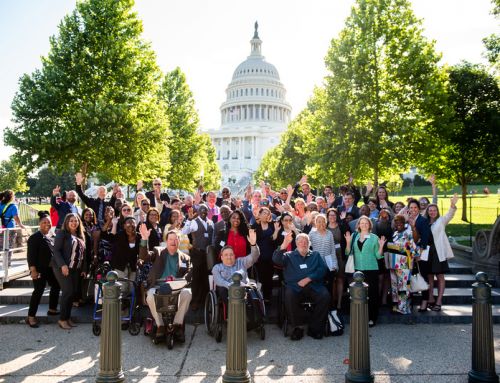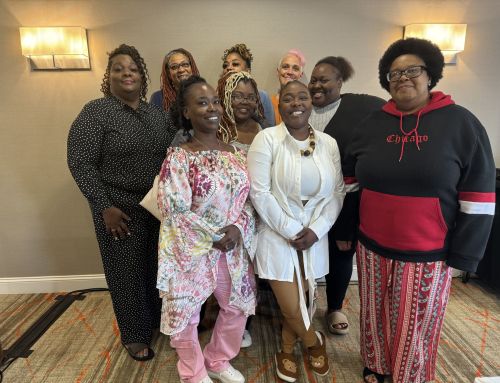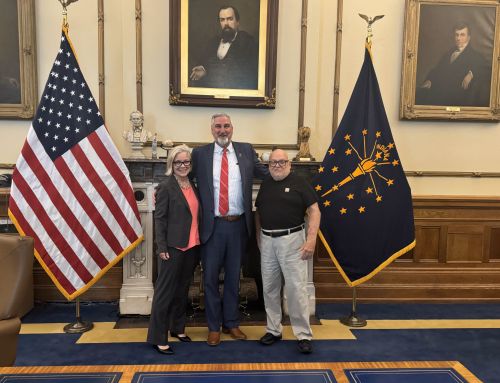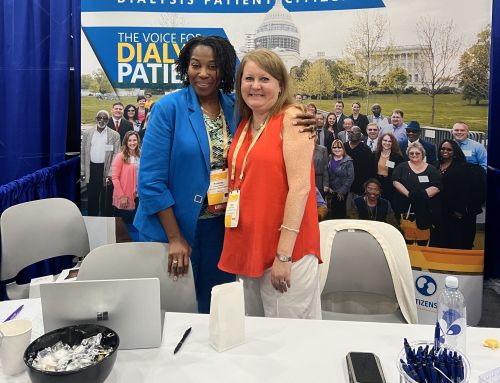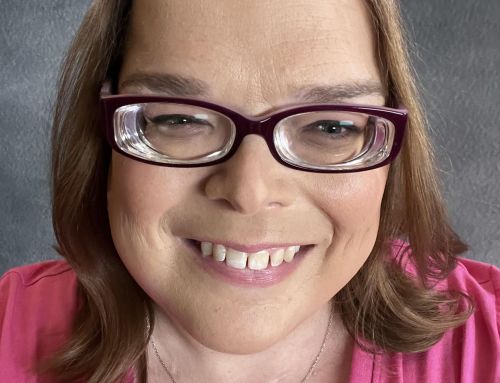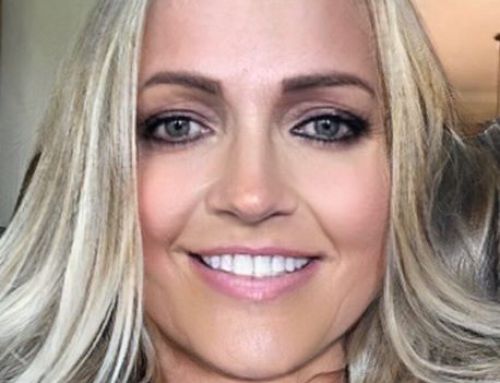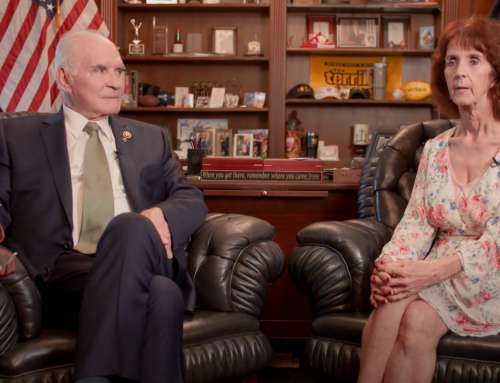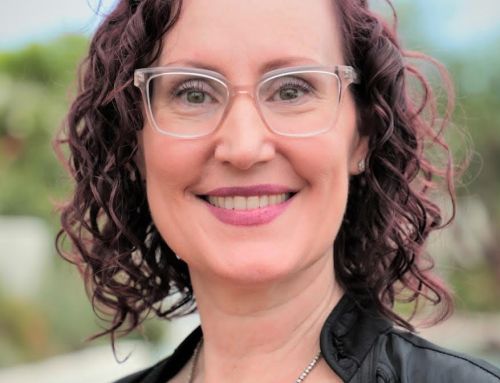Today the global community of people fighting kidney disease commemorates World Kidney Day, an effort to raise awareness of the importance of healthy kidneys and reduce the devastating impact of kidney disease, which affects 1 out of every 10 people worldwide.
Although the condition is incurable, effective treatments are available. An estimated 2.6 million people with end-stage renal disease (ESRD), or kidney failure, received dialysis in 2010. That number is expected to more than double to 5.4 million by 2030.
As the incidence of kidney disease rises, so too does the importance of ensuring that patients have access to lifesaving care. That’s certainly the case in this country, where high insurance costs prevent many ESRD patients from receiving the treatment they need to stay alive.
The theme of this World Kidney Day is “Get Moving,” a reference to the importance of physical activity to maintaining good kidney health. But this message could also be directed at lawmakers and policymakers, whose support we need to improve access to critical care for kidney disease patients nationwide.
We at Dialysis Patient Citizens support policies at the federal and state levels that promote access to affordable health care for people with chronic kidney disease. Our membership is made up of nearly 30,000 dialysis and pre-dialysis patients nationwide who participate in grassroots efforts that urge elected officials to ensure that ESRD patients get the care they need.
Our top priorities, which are guided by our membership, are to:
Preserve patient access to charitable assistance – Many ESRD patients are unable to work, making health insurance premiums difficult to afford. Fortunately, charitable organizations such as the American Kidney Fund provide financial assistance to patients in need of help paying premiums for private insurance coverage or Medigap plans. But insurance companies, looking for ways to exclude expensive kidney disease patients from coverage, routinely reject charitable assistance.
We work to protect the right of patients to accept charitable help so they can keep their insurance coverage and their access to lifesaving treatment. In January we successfully prevented the federal government from enforcing a regulation that would have given insurers illegal veto power a patient’s ability to receive charitable assistance. We are also working in several states to oppose insurers that refuse charitable help for Medigap plans.
Expand eligibility for Medigap – While patients in several states are fighting to pay their Medigap premiums with charitable assistance, patients in other states are fighting for the right just to buy Medigap coverage in the first place. ESRD patients under age 65 are prohibited in 23 states from purchasing a Medigap plan, leaving them responsible for the 20 percent of health care costs not covered by Medicare. In several of the states that do permit ESRD patients to purchase a Medigap policy, patients can buy only the most basic plan, which still leaves a substantial portion of their medical bills uncovered.
Those bills can add up quickly, as anyone with chronic kidney disease knows. Out-of-pocket expenses for dialysis alone will cost ESRD patients in Medicare an estimated $7,225 this year. That doesn’t count the thousands of dollars in additional out-of-pocket costs for physician visits, hospital admissions and other services those patients need to stay alive. The answer is simple: Congress should amend federal law to clarify that all Medicare beneficiaries, regardless of age, should be able to buy Medigap plans.
Ensure that health system changes work for dialysis patients – The new administration and congressional leaders have pledged to change our nation’s health care system to lower costs and improve quality. We support these goals on behalf of people with kidney disease, who are among the most vulnerable patients in our health care system.
Dialysis and pre-dialysis patients require extensive and often expensive care to treat their incurable disease. Often they cannot work full-time, if at all. Their lives depend on having health insurance that covers critical care at a cost they can afford. There was a time when people with kidney disease were routinely denied coverage, or charged premiums and out-of-pocket costs without limits. We are gratified that Republican and Democratic leaders oppose allowing insurance companies to exclude pre-existing conditions from coverage, and we look forward to working with lawmakers of both political parties to improve health care for all.
Make Medicare Advantage available to ESRD patients – Federal law allows most ESRD patients to enroll in Medicare before they turn 65. But unlike all other Medicare beneficiaries, dialysis patients under the traditional enrollment age were excluded from Medicare Advantage plans – until last year. In December, Congress passed the 21st Century Cures Act, which includes provisions that for the first time make Medicare Advantage plans available to dialysis patients under age 65.
The bill’s passage capped a years-long effort by DPC and the entire kidney disease community to give ESRD patients access to benefits offered in Medicare Advantage but not traditional Medicare. For example, MA plans often include case-management services that help to assess patients’ needs, set health goals and provide ongoing support to patients. The MA program also limits a patient’s out-of-pocket costs to $6,700 per year, as compared to cost sharing of $15,000 per year for Medicare beneficiaries with ESRD. We urge insurers to offer ESRD patients these and other benefits of MA plans that are not available in traditional Medicare.
I invite you to learn more about the many ways DPC is working to improve the quality of life of dialysis patients, and I encourage you to join us on this World Kidney Day to raise awareness about the prevention and treatment of chronic kidney disease.

